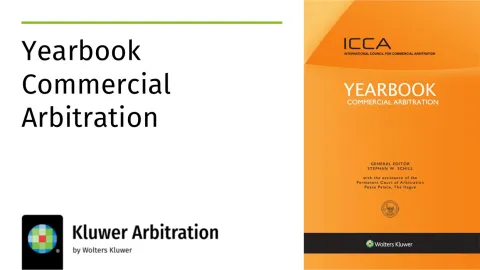No Backdoors Allowed: English Court Shuts Out Tactical Delay in Arbitration Award Enforcement
September 1, 2025
In an interesting decision, the English Commercial Court dismissed an application brought by Colin Reen and K.M. Dastur Holdings Limited (the “Applicants”), who were the defendants in several underlying arbitral proceedings against Deinon Insurance Brokers LLC (“Deinon”). By way of this application, the Applicants sought to stay the enforcement and execution of six money judgments obtained in favour of Deinon. Each of the Orders permitted Deinon to enforce the Awards under Section 66 of the Arbitration Act 1996 (the “Act”).
This case brings into focus the Doctrine of Collateral Attack in the context of enforcing arbitral awards and the English Court’s resistance to procedural manoeuvres that seek to obstruct or delay enforcement after final determination. Against this background, the article aims to contribute to the ongoing discussion within the arbitration community about the limits of permissible challenge to arbitral awards, especially via indirect routes such as foreign litigation or tactical stay applications, once direct statutory avenues have been exhausted. The analysis also compares this English stance with approaches in India, Singapore, and the United States.
Background to the Dispute
Deinon, an entity engaged in providing insurance and reinsurance services, had entered into loan arrangements with the Applicants. Following separate arbitral proceedings, each presided over by a sole arbitrator, the Applicants were found liable to repay certain sums to Deinon, along with interest, under certain loan agreements.
The arbitral awards were recognised for enforcement under the Act, and monetary judgments were later issued in Deinon’s favor. The Applicants’ attempts to challenge the awards under Sections 68 and 69 of the Act failed, as did their applications for leave to appeal and to set aside the enforcement orders.
Undeterred, the Applicants applied to the court for a stay of execution of the judgments. They contended that enforcing the judgments would pose a ‘real risk of prejudice’ to them because (i) Deinon was allegedly controlled by someone falsely claiming to be its beneficial owner; (ii) the person they asserted was the true beneficial owner was Mr. Dastur, a relative of one of the Applicants; (iii) Mr. Dastur had initiated legal proceedings in Dubai to prove his ownership; and (iv) if successful in those proceedings, Mr Dastur purportedly would not enforce the arbitral awards, hence, payment to Deinon now would risk the misappropriation of funds by an illegitimate controller.
Legal Principles that Formed the Basis of the Court's Ruling
The Court refused to stay the enforcement, emphasising several key points:
Civil Procedure Rule 83.7
Civil Procedure Rule 83.7, which governs applications for a stay of execution in cases involving money judgments, grants the Court a discretionary power exercisable only in limited and well-recognised circumstances. The Court observed that in such a case, an applicant must demonstrate the existence of special circumstances that render enforcement inexpedient. Since this requirement imposes a deliberately high bar, the principle underpinning it is well established—a judgment creditor is entitled, as of right, to the immediate enforcement of a valid judgment and to the benefits it confers. To dilute that entitlement by permitting debtors to manufacture conditions for delay, or to re-litigate matters already determined in a final and binding judgment, particularly by invoking proceedings in foreign jurisdictions, would risk eroding the integrity and finality of the domestic judicial process. Accordingly, the Court declined to grant a stay, finding no truly exceptional circumstances that would justify such intervention.
No Re-litigation of Final Awards
The Court found that the stay application amounted to a veiled attempt to revisit matters already conclusively resolved by the arbitral tribunals. Granting a stay in such circumstances would undermine the finality and binding nature of arbitral awards, a cornerstone of the Act, particularly under Section 58(1) and the principles set out in Section 1(a) concerning efficiency and finality.
Abuse of Process and Collateral Attacks
The Court further made clear that the courts must guard against both direct and indirect challenges to arbitral awards. Applications that effectively serve as a "backdoor" method of avoiding enforcement, such as relying on unrelated foreign proceedings, can constitute what is known as a collateral attack. The Dubai Proceedings, according to the court, appeared to be manufactured as a tactical delay, rather than representing genuine, exceptional circumstances.
Arbitrator Already Addressed Ownership Dispute
Importantly, the question of Mr Dastur’s alleged ownership had already been raised and dismissed by the arbitrator in one of the underlying cases. This lent further weight to the argument that the Dubai Proceedings were part of an orchestrated strategy to hinder enforcement rather than a legitimate dispute.
Takeaways
This case reinforces the English judiciary’s commitment to upholding the enforceability of arbitration awards and resisting attempts to undermine them through collateral means. While the term “collateral attack” is not expressly found within the Act, it is a well-recognised judicial concept that courts invoke to prevent abuse of process, especially where foreign or satellite proceedings are used to frustrate the outcome of valid awards.
The decision follows earlier case law, such as C v. D, which cautions against permitting litigants to nullify arbitral outcomes by orchestrating parallel proceedings abroad. It also highlights that the English courts will scrutinise the substance of such applications, rather than being misled by their form.
Ultimately, the judgment confirms that once the statutory avenues for challenging an award under the Act have been exhausted, enforcement should proceed unhindered, barring genuine and exceptional circumstances. In the absence of such circumstances, the award creditor, in this case Deinon, was entitled to make full use of the enforcement tools provided by English law.
The “Collateral Attack” Doctrine
The doctrine of collateral attack refers to an attempt to challenge the validity of a judgment or order in a proceeding other than one specifically intended to reverse, vary, or nullify that judgment. In the context of arbitration, the rule against collateral attack serves to protect the integrity and finality of arbitral awards by preventing parties from undermining them through indirect means or alternative forums. This tactic is usually typical of a party that, having already failed in its direct challenges to the arbitral decision, now resorts to tactics aimed at avoiding its responsibilities.
In this case, the Court found that there were no exceptional circumstances that could justify a stay of enforcement. Granting such a stay would have gone against the core principle that arbitral awards are meant to be final and binding. When viewed alongside the application for a stay, the Dubai Proceedings were, in essence, a veiled attempt to undermine the integrity of the Awards. The Court recognised them for what they truly were—a calculated move to stall enforcement and delay payment. It constituted a deliberate effort to derail the enforcement process and push back the day when Deinon finally receives the compensation it has long been owed.
Different Jurisdictions on “Collateral Attacks” in the Context of Arbitration
India
In India, courts have consistently emphasized the finality of arbitral awards and have discouraged indirect attempts to challenge or obstruct their enforcement. Under the Arbitration and Conciliation Act, 1996, once an award has survived a challenge under Section 34 or once the limitation to file such a challenge has lapsed, it is treated as final and binding under Section 36.
Indian courts have warned against “re-agitating issues already decided in arbitration”, particularly in enforcement proceedings. For example, in Fuerst Day Lawson Ltd. v. Jindal Exports Ltd., the Supreme Court emphasized that enforcement proceedings are not an opportunity to re-litigate the merits. The courts have also been wary of foreign proceedings being used tactically to delay enforcement, viewing such actions as abusive unless exceptional public policy considerations are present.
Singapore
Singapore, as a leading arbitration hub, has taken a firm stance against collateral attacks. Under the International Arbitration Act 1994 (IAA) and the UNCITRAL Model Law, arbitral awards are final and binding, and challenges are narrowly confined to limited grounds such as procedural unfairness, lack of jurisdiction, or breach of natural justice.
In cases like Soh Beng Tee & Co Pte Ltd v Fairmount Development Pte Ltd., the Singapore Court of Appeal affirmed that once an award is issued, parties cannot use enforcement proceedings or unrelated litigation to indirectly revisit those issues. Singapore courts are also vigilant in identifying whether foreign or related proceedings are being used as tools to frustrate enforcement and have rejected such attempts where they resemble “collateral challenges in disguise”.
United States
In the United States, the Federal Arbitration Act (FAA) governs the enforcement of arbitral awards. U.S. courts strongly favor arbitration and strictly limit the grounds for vacating or refusing enforcement of awards (e.g., fraud, arbitrator misconduct, or exceeding authority).
Courts in the U.S. are generally quick to reject collateral attacks under doctrines such as res judicata and issue preclusion. The 2nd Circuit Court of Appeals in Yusuf Ahmed Alghanim & Sons v. Toys "R" Us, Inc. made clear that once an award has been confirmed by a U.S. court, its validity cannot be undermined through later actions that attempt to revisit the arbitration’s outcome indirectly. The collateral attack doctrine is particularly relevant in cases where parties initiate separate litigation, domestically or abroad, to cast doubt on an award’s enforceability. U.S. courts are careful to distinguish between legitimate challenges and strategic manoeuvres to delay or avoid compliance with a binding award. This is consistent with the public policy in favor of arbitration and the finality of arbitral awards.
Conclusion
Across jurisdictions, the doctrine of collateral attack serves a vital function: it preserves the integrity and enforceability of arbitral awards. Whether in England, India, Singapore, or the United States, courts are aligned in their resistance to procedural manoeuvres aimed at circumventing the arbitral process. This alignment underscores a shared global commitment to upholding arbitration as an efficient, final, and binding dispute resolution mechanism.
The English Commercial Court’s decision in Deinon is a strong reaffirmation of this principle. It signals to parties worldwide that tactical litigation or forum-shopping will not be entertained as a substitute for proper arbitral procedure, and that once the opportunity for a direct challenge has passed, enforcement will proceed unhindered.
You may also like










